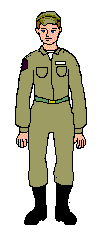



HISTORY 2341-006
(World War II)
Synonym #20285
Dr. Allan Purcell





HISTORY 2341-006
(World War II)
Synonym #20285
Dr. Allan Purcell

COURSE OBJECTIVE: This
course will acquaint the student with the basic facts of United States
participation in World War II using a textbook, classroom exposition, outside
readings, computer-assisted instruction, and audio-visual techniques. Although
the coverage of the material is comprehensive, there will be an emphasis
on political, constitutional, military, and economic history.
COURSE DESCRIPTION: This
course is a survey of the political, military, and social history of World
War II.
COURSE RATIONALE:
This course offers the student the opportunity to examine in depth the
U.S role in World War II. It provides interested students the ability
to examine "The Greatest Generation" and the world they shaped and provides an elective for History majors and other
transfer curriculum students.
COURSE METHODOLOGY:
This is a lecture course with opportunity for student discussion.
COMMON COURSE OBJECTIVES:http://www.austincc.edu/history
TEXTBOOK: Robert Leckie. Delivered From Evil.
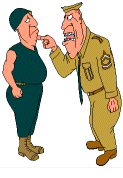
COURSE REQUIREMENTS:
1. The material in Delivered From Evil is to be read and studied according to the attached schedule.
2. Punctual and regular attendance is required. Any student accumulating three (3) or more UNEXCUSED absences MAY be dropped from this course. This is at the discretion of the instructor.
3. The quality and quantity of the work done by the student determines his/her final grade:
For the grade of "A", the student must complete all four unit exams with an overall average of 90 or above AND write two analytical book reviews (at least one of which must be graded "EXCELLENT" and the other "ACCEPTABLE") AND pass the course map test.
For the grade of "B", the student must complete all four unit exams with an overall average of 80 or above AND write one analytical book review (which must be graded at least "ACCEPTABLE") AND pass the course map test.
For the grade of "C", the student must complete all four unit exams with an overall average of 70 or above AND pass the course map test.
For the grade of "F", the student who fails to take all four unit exams or who fails to maintain an overall average of 70 on these four unit exams or who fails the course map test or who commits any act of scholastic dishonesty will earn the grade of "F".
For
the grade of "I", the student must have a medical excuse certified
by a physician. Otherwise there will be NO Incompletes.
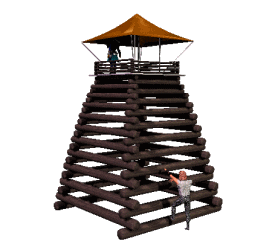
UNIT EXAMS: Each
of the four unit exams may be taken twice. The first time will be
in class on the day mentioned in the attached semester schedule.
If the student wishes to retest, they may take the exam one more time in
the Testing Center. However, there are two restrictions on the retest:
first, the HIGHEST GRADE POSSIBLE ON THE
RETEST IS 70 and second, THIS
RETEST MUST BE TAKEN WITHIN ONE WEEK OF THE TIME THE UNIT EXAM IS GIVEN
IN CLASS. The higher of the two grades will be the one recorded
for the student for that unit exam. (If a student misses the unit
exam in class for good cause- as determined by the instructor- they may
then take the unit exam in the Testing Center for the first time with no
restrictions on the grade.) CAUTION: STUDENTS
TAKING OR RETAKING UNIT EXAMS IN THE TESTING CENTER SHOULD RETAIN THE TESTING
CENTER "FEEDBACK" SHEET AND PRESENT IT TO THE INSTRUCTOR AT THE NEXT CLASS
MEETING.
The unit exams consist of multiple-choice
questions covering the textbook material and classroom exposition as highlighted
by the learning objectives issued for each chapter.

AL'S SPECIAL DISPENSATION: If I have scheduled my unit exam on the same day on which you are already taking one or more exams, you may take my exam a day or two earlier or later (in the Testing Center), PROVIDED THAT YOU TELL ME BEFORE THE EXAM DAY.

MAP TEST: Because
World War II history is shaped and influenced by the geography of the conflict,
it is imperative that the student knows the basic facts of World War II
geography. Therefore the student will be required to pass a geography
map test. This test will require the student to locate on an outline
map of the world twenty of the features named on the attached list.
A passing score is 80. The test will be taken in the classroom on an outline
map provided with Unit Exam #1. This map test must be passed by the
mid-semester point.

COMPUTER-ASSISTED INSTRUCTION:This
is entirely voluntary. All of the learning objectives for this course
have been programmed in
the accompanying internet computer tutorial found at http://www.austincc.edu/purcell. Further instructions
on the use of this material as one means of learning course material will
be provided during an in-class demonstration period at the beginning of
each semester. I wish to make two important points concerning computer-assisted
instruction: first, this is completely voluntary- the student is NOT
required to use computer-assisted instruction, however experience has shown
those students who do use it tend to score higher on the unit exams and
second, computer-assisted instruction supplements but DOES
NOT REPLACE CLASSROOM INSTRUCTION. Even if students
use computer-assisted instruction, they must still attend class.
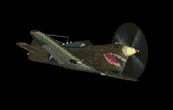
ANALYTICAL BOOK REVIEWS:
Rationale: This analytical
book review will critically examine an important scholarly book covering
some aspect of United States participation in World War II.
The purpose of this review is twofold: first, to acquaint the student with a classic volume of historical scholarship and second, to allow the student to think critically about an important facet of American history and then to organize your thoughts in clear, cogent prose. You should not view this simply as a hurdle which you must overcome in order to earn a grade of "A" or "B" in this course, but rather approach it as an opportunity to expand your creativity in thinking and writing, two very important aspects of any individual's necessary life skills. Therefore, be advised that I consider this a VERY important aspect of this course and your reviews will be read and graded VERY carefully.
Form: Each book review
will be approximately 1500 words long, although this is a general guideline
and not an absolute requirement. The main objective of this analytical
book review should be to comprehensively cover the three sections of the
following book review outline:
Part I: This
is a brief outline of the contents of the book. In the space of one
or two paragraphs you should be able to convey the parameters of the book's
contents. DO NOT simply reproduce the book's table of contents.
Part II: Here
is the place for a careful summary of the author's thesis.
The thesis is the primary idea the author is trying to prove and convince
the reader to accept. You must first identify the thesis and then
show how the author either substantiates or fails to substantiate this
thesis. This will undoubtedly take you a page or two to do a good
job.
Part III: This
is the most important part of your book review. Here is where you
describe your reaction to the book. Some of the questions you must
answer include: Do you agree or disagree with the book's conclusions?
Why? Did the book support or contradict what you read in your textbook
on the same subject? (You MUST quote
some of the relevant passages from both books.) Did you detect any
biases on the part of the author? What was the author's background
and why did he or she write the book? How in your opinion could the
book have been improved? You must be specific and keep in mind there
are NO perfect books. Did you enjoy reading the book? Why or why
not? Would you recommend it to others?
Grading: The book
reviews will be graded "EXCELLENT",
"ACCEPTED",
or "NOT ACCEPTED". The second book
review, required only of those seeking the grade of "A", must be graded
"EXCELLENT".
The first book review, required of those seeking the grades of "A" and
"B", must be at least "ACCEPTED".
Any "NOT ACCEPTED" books will be returned
to the student to be rewritten.
Due Dates: The first
analytical book review is due at mid-semester. This is required for those
seeking a "B" or "A" in the course.
The second analytical book review is due one week before
the end of the semester. This is required only of those seeking the grade
of "A" in the course.
Books: The following books may be read for the analytical book review. If you wish to substitute another book for one of these, YOU MUST RECEIVE THE INSTRUCTOR'S PRIOR APPROVAL. All of the following books are found on the shelves of the RGC Library.
John Armor & Peter Wright. Manzanai
David Brinkley. Washington Goes to War
Larry Collins & Dominique La Pierre. Is Paris
Burning?
John Costello. Virtue Under Fire
Roger Daniels. Concentration Camps: North America
Herbert Feis. The Atomic Bomb and the End of World
War II
Herbert Feis. Churchill, Roosevelt, Stalin
David Fisher. The War Magician
Mitsuo Fuchida & Masatake Okumiya. Midway
Edwin Hoyt. To the Marianas
Saburo Ienaga. The Pacific War
Thomas James. Exile Within: The Schooling of
Japanese-Americans
Lee Kennett. For the Duration
William Leary. We Shall Return
Graham Lyons. The Russian View of the Second World
War
Roger Manvell. Films and the Second World War
Raul Morin. Among the Valiant: Mexican-Americans in
World War II
Samuel Eliot Morison. The Two Ocean War
Gordon Prange et al. At Dawn We Slept
Gordon Prange et al. December 7, 1941
Gordon Prange et al. Miracle At Midway
Bill Ross. Iwo Jima: Legacy of Valor
Harrison Salisbury. The 900 Days: The Siege of Leningrad
Bradley Smith. The Shadow Warriors
Ronald Spector. Eagle Against the Sun
Richard Wheeler. A Special Valor: The U.S. Marines
& the Pacific War
F.W. Winterbotham. The Ultra Secret
John Winton. War in the Pacific
Earl Ziemke. Stalingrad to Berlin: The German Defeat
in the East
ADDITIONAL BOOKS FOR BOOK REVIEW: There are many other excellent books written on subjects concerning World War II that are not in the ACC LRC at RGC. You may find them at the Austin Public Library or at one of the UT Libraries. If a particular subject or topic mentioned in the textbook appeals to you, check the textbook bibliography and then see if the book is in one of these libraries. If you select a book not on the list on this syllabus, please show me the book BEFORE you begin to read it.
***************************************************************************************
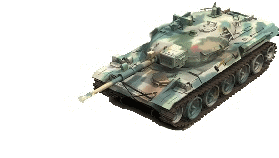
Class Schedule
| Date | Classroom Activity | Textbook Chapters |
| Jan 17 | Introduction | |
| Jan 19 | Legacy of WWI | |
| Jan 24 | Rise of Hitler | |
| Jan 26 | Attack on Poland | 11, 12 |
| Jan 31 | Blitzkrieg in the West | 13-16 |
| Feb 2 | Dunkirk | 17 |
| Feb 7 | Battle of Britain & Atlantic War | 21 |
| Feb 9 | Southeastern Europe | 22 |
| Feb 14 | Africa | 23-26 |
| Feb 16 | Russia in 1941 | 27, 32 |
| Feb 21 | Russia in 1941 | 29-31, 33, 34 |
| Feb 23 | UNIT EXAM #1 | |
| Feb 28 | Pearl Harbor | 35, 37-41 |
| Mar 2 | Philippines | 42, 44 |
| Mar 7 | North Africa | 45-47 |
| Mar 9 | Coral Sea & Midway | 48 |
| Mar 14 & 16 | SPRING BREAK | |
| Mar 21 | Guadalcanal | 49-52 |
| Mar 23 | UNIT EXAM #2 | |
| Mar 28 | USSR in 1942 | 53 |
| Mar 30 | Operation Torch & Africa | 53, 61, 64-66 |
| Apr 4 | Atlantic War & Sicily | 66, 67 |
| Apr 6 | Italy | 67, 82 |
| Apr 11 | Pacific 1943 & Tarawa | 70, 71, 74 |
| Apr 13 | UNIT EXAM #3 | |
| Apr 18 | D-Day Preparation | 88 |
| Apr 20 | Normandy | 89, 90 |
| Apr 25 | Normandy Breakout | |
| Apr 27 | Siapan | 92-94 |
| May 2 | War in France/Battle of Bulge | 112-113 |
| May 4 | War in France, V-E Day | 123-126 |
| May 9 | Iwo Jima-Okinawa | 119-122, 128-132 |
| May 11 | UNIT EXAM #4 | |
***************************************************************************************

OFFICE HOURS: M
W 6:30AM to 1:00PM in ATT 214
T H 6:30AM to 9:00AM
in ATT 214

TELEPHONE:512-223-3398
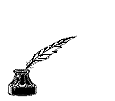
E-MAIL: apurcell@austincc.edu

DUE DATES:1st
Book Report for "B" or "A" due March 9, 2017
2nd Book Report for "A" due May 4, 2017

WITHDRAWAL POLICY: Punctual and regular attendance is required. Any student accumulating three (3) or more UNEXCUSED absences MAY be dropped from this course. This is at the discretion of the instructor.
LAST DAY TO WITHDRAW: April
24, 2017

COURSE COMPLETION DEADLINE: May
11, 2017 at end of class
ADA: "Each ACC Campus offers support services for students with documented physical or psychological disabilities. Students with disabilities must request reasonable accomodations through the Office for Students with Disabilities on the campus where they expect to take the majority of their classes. Students are encouraged to do this three weeks before the start of the semester." (ACC Student Handbook)
SCHOLASTIC DISHONESTY:"Acts prohibited by the college for which discipline may be administered include scholastic dishonesty, including but not limited to cheating on an exam or quiz, plagiarizing, and unauthorized collaboration with another in preparing outside work. Academic work submitted by students shall be the result of their own thought, research, or self-expression. Academic work is defined as, but not limited to tests, quizzes, whether taken electronically or on paper; projects, either individual or group; classroom presentations, and homework." (ACC Student Handbook) Anyone committing these acts in this course will receive the grade of "F" for the course.
TESTING CENTER POLICY:http://www.austincc.edu/testctr
ACADEMIC FREEDOM:The
free exchange of information is vital to the pursuit of learning.
PRIVACY:The
Family Educational Rights and Privacy Act (FERPA) protects confidentiality
of educational records. Grades cannot be given over the phone, through
a fellow student, or by e-mail in this course.
BUILDING REGULATIONS:ACC building regulations prohibit smoking, drinking, or eating in the classrooms. These regulations will be enforced in this course.
